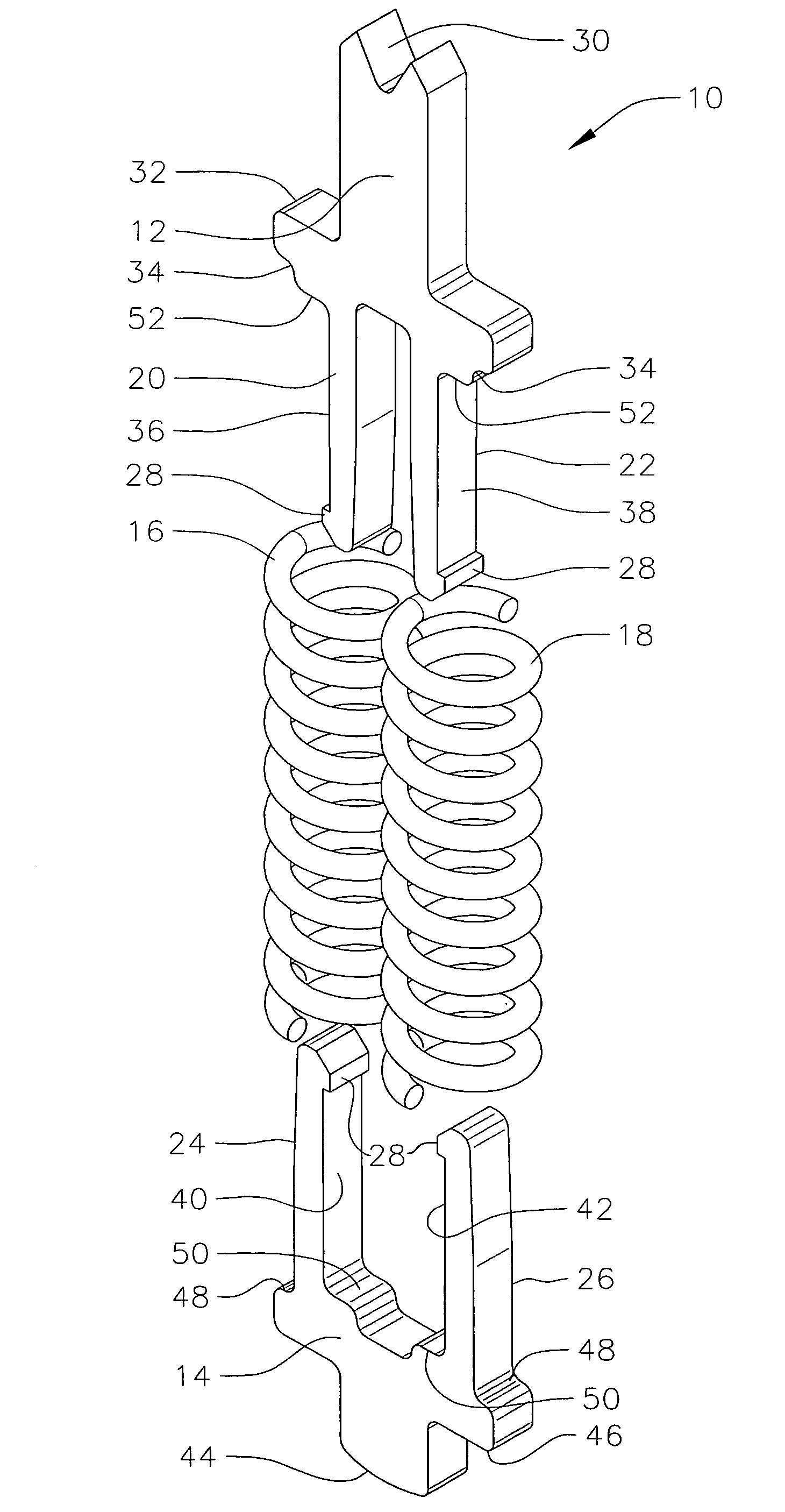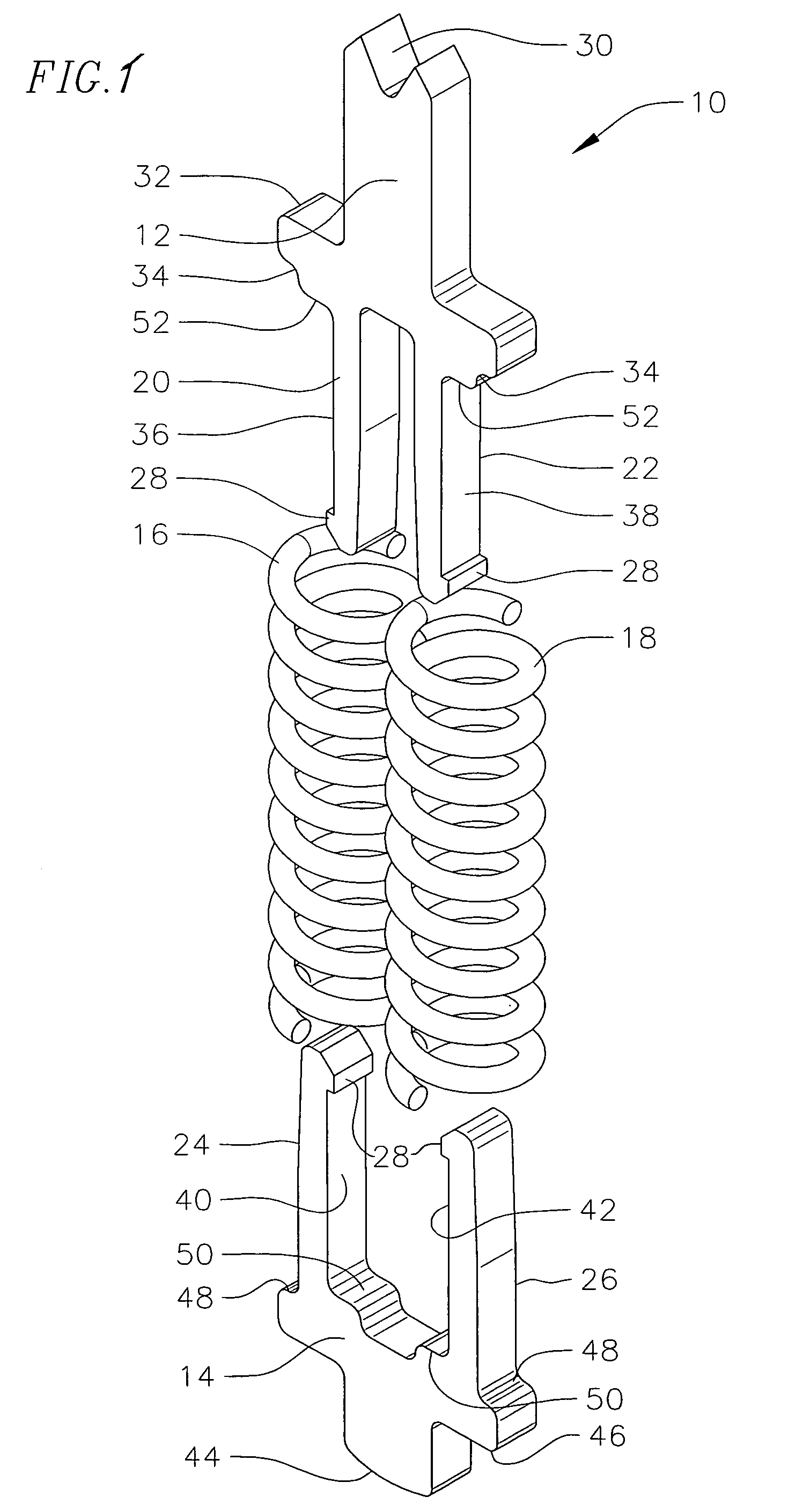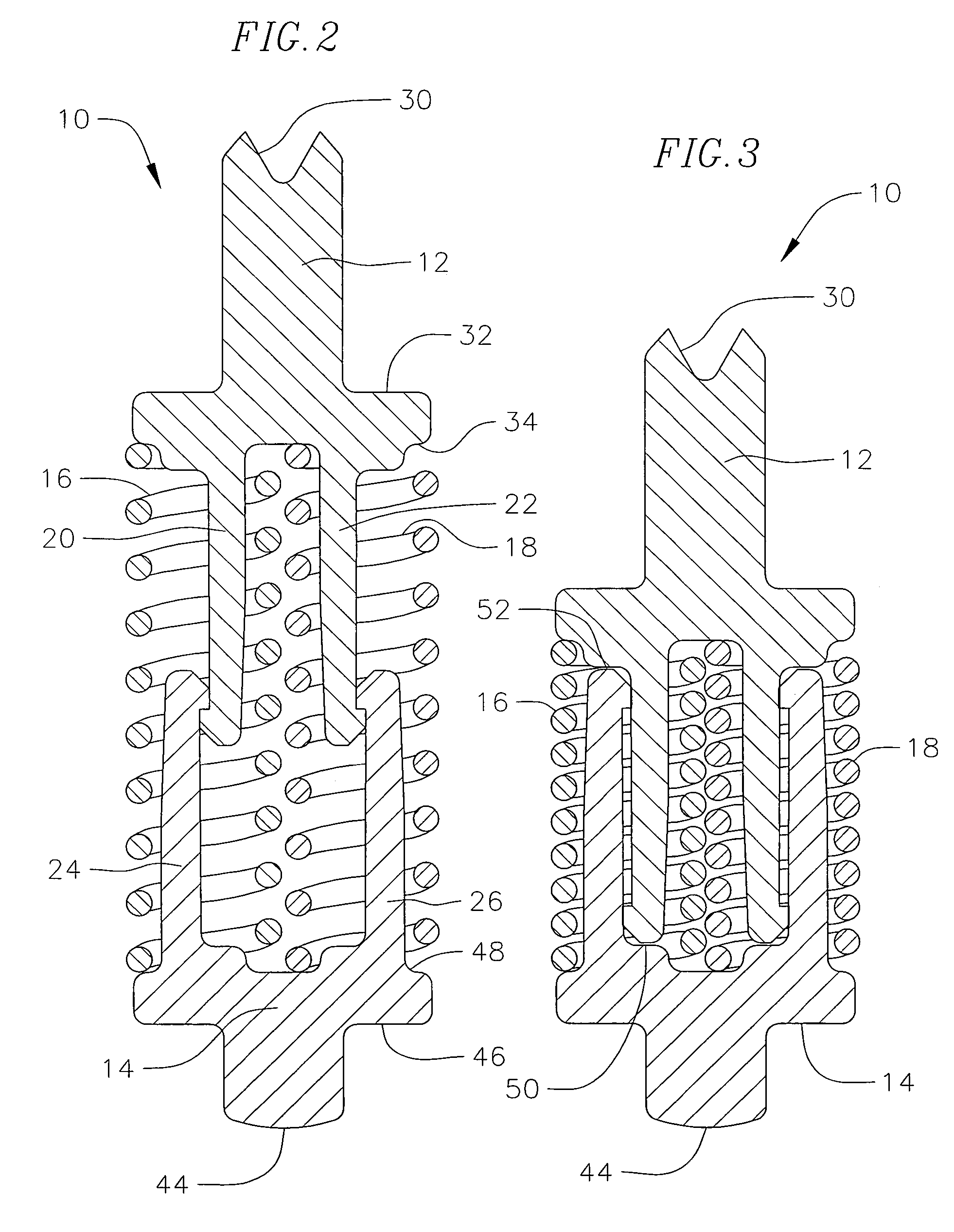Electrical contact probe with compliant internal interconnect
a technology of contact probes and internal interconnects, applied in the field of electric contact probes, can solve the problems of deformation of interconnects and arms that are slightly perpendicular to each other, and achieve the effects of maximizing mechanical compliance, stable contact resistance, and maximizing the compliance of interconnects
- Summary
- Abstract
- Description
- Claims
- Application Information
AI Technical Summary
Benefits of technology
Problems solved by technology
Method used
Image
Examples
Embodiment Construction
[0028]FIGS. 1-3 illustrate an electrical contact probe 10 with compliant internal interconnect of the present invention. The probe 10 consists of two moving fabricated electrically conductive components, namely upper component or plunger 12 and lower component or barrel 14 with one or more electrically conductive compliant helical springs 16 and 18 in between upper component 12 and lower component 14. The compliance of the interconnect is maximized in order to accommodate mechanical tolerance of the interconnect application. In addition to maximizing the mechanical compliance, the helical springs or other compliant non-conductive structures of the spring probe provide adequate normal force to the unit under test and the printed circuit board between which the spring probe is placed in order to provide electrical contact that maintains stable contact resistance. The overall length of the contact probe is minimized, in order to maximize high frequency response of the overall connectio...
PUM
 Login to View More
Login to View More Abstract
Description
Claims
Application Information
 Login to View More
Login to View More - R&D
- Intellectual Property
- Life Sciences
- Materials
- Tech Scout
- Unparalleled Data Quality
- Higher Quality Content
- 60% Fewer Hallucinations
Browse by: Latest US Patents, China's latest patents, Technical Efficacy Thesaurus, Application Domain, Technology Topic, Popular Technical Reports.
© 2025 PatSnap. All rights reserved.Legal|Privacy policy|Modern Slavery Act Transparency Statement|Sitemap|About US| Contact US: help@patsnap.com



